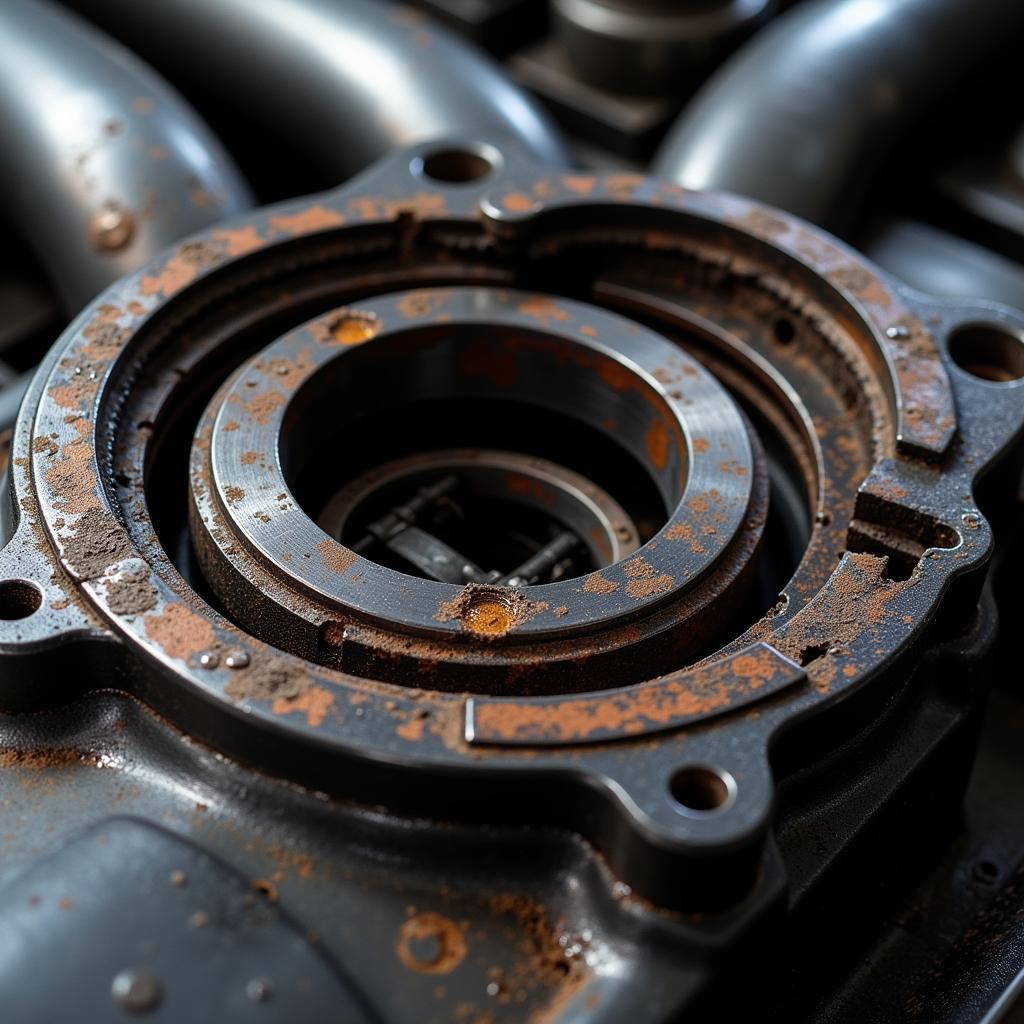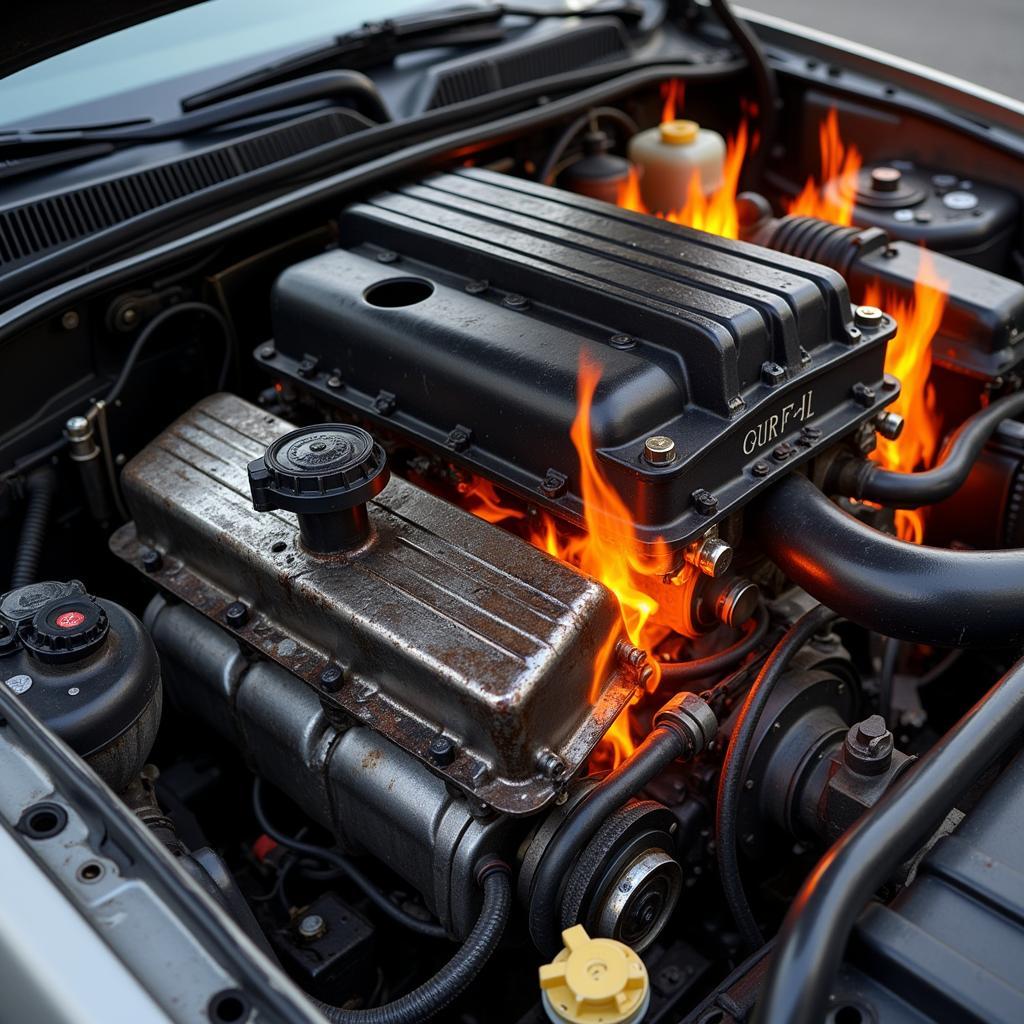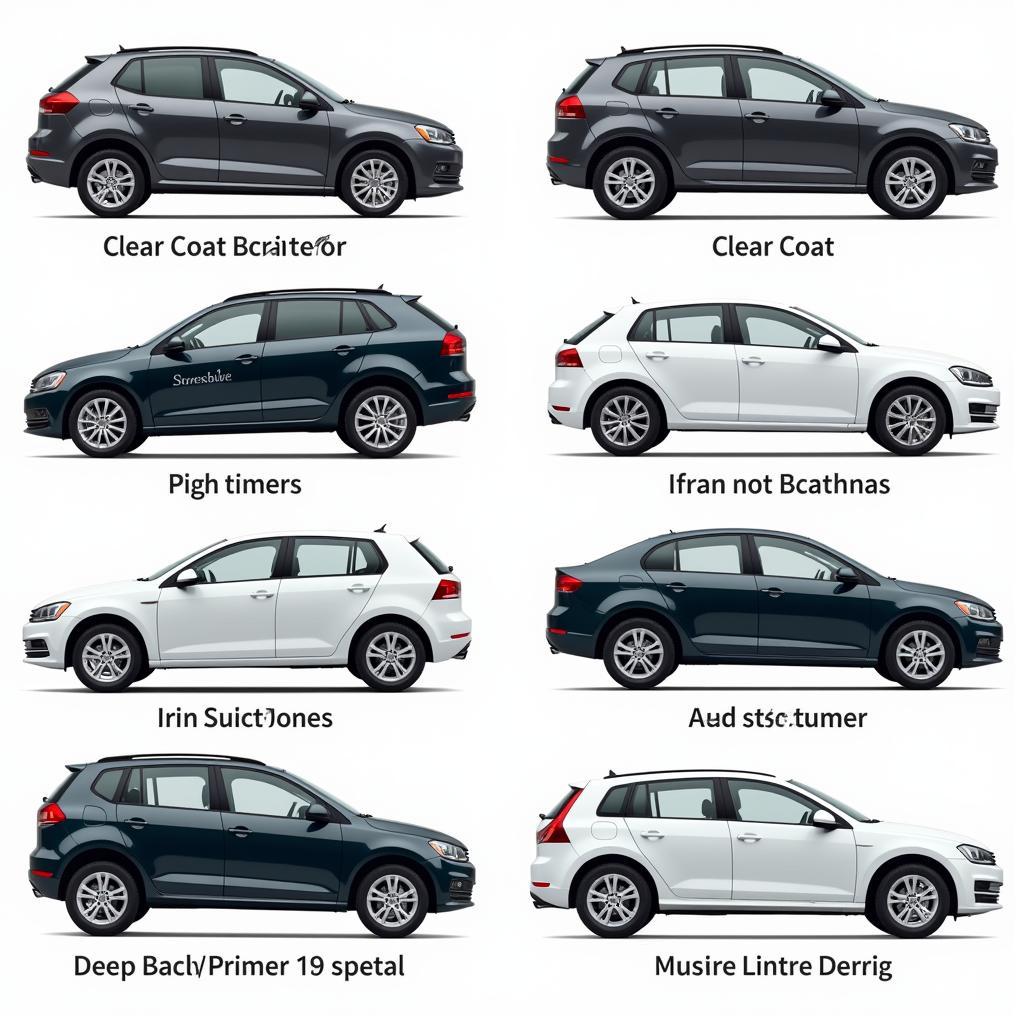Burning oil is a common yet frustrating car problem that can lead to costly repairs if left unchecked. This guide provides a comprehensive overview of how to diagnose and fix a car that’s consuming too much oil, offering practical advice for car owners, mechanics, and automotive technicians. car burning oil quick fix Understanding the root cause is crucial for effective and long-lasting solutions.
Identifying the Culprit: Why is My Car Burning Oil?
Several factors can contribute to oil consumption. Pinpointing the exact cause is the first step toward a solution. Is it worn piston rings, leaky valve seals, or perhaps a problem with the PCV valve? Let’s delve into the common culprits and learn how to identify them.
Worn Piston Rings: A Common Cause
Piston rings are essential for sealing the combustion chamber and preventing oil from entering. Over time, these rings can wear down, losing their effectiveness and allowing oil to seep into the cylinders and burn. Symptoms of worn piston rings include blue smoke from the exhaust, especially during acceleration, and increased oil consumption.
 Worn Piston Rings Causing Oil Burning
Worn Piston Rings Causing Oil Burning
Leaky Valve Seals: Another Usual Suspect
Valve seals prevent oil from leaking down the valve stems and into the combustion chamber. When these seals become hardened or cracked, they can no longer effectively seal, leading to oil burning. This can manifest as blue smoke upon startup or during deceleration.
PCV Valve Issues: Often Overlooked
The Positive Crankcase Ventilation (PCV) valve plays a vital role in regulating crankcase pressure and removing harmful blow-by gases. A malfunctioning PCV valve can disrupt this process, causing excessive oil consumption and potentially damaging the engine.
How to Fix a Car That Burns Oil: Step-by-Step Guide
Now that we understand the potential causes, let’s explore the solutions. From simple DIY fixes to more complex repairs, this guide covers it all. fix car training Remember, safety first! Always follow proper safety procedures when working on your car.
1. Check Your Oil Level Regularly
Regularly checking your oil level can help you detect oil burning early on. Make this a habit to avoid costly damage down the line.
2. Try Thicker Oil
Using a thicker oil can sometimes temporarily reduce oil consumption, especially in older engines with worn components. However, this is not a long-term solution and should be considered a temporary measure while you explore more permanent fixes.
3. Replace Worn or Damaged Components
Replacing worn piston rings, valve seals, or a faulty PCV valve is often the most effective solution for addressing oil burning. This can involve more complex repairs and may require professional assistance.
4. Engine Rebuild: The Last Resort
In some cases, a complete engine rebuild may be necessary, especially if the engine has suffered significant damage due to prolonged oil burning. This is the most expensive option but can restore the engine to its optimal performance.
What if I Ignore the Problem?
Ignoring oil burning can lead to serious engine damage, including decreased performance, catalytic converter failure, and even engine seizure. Addressing the issue promptly is crucial to prevent further complications and costly repairs. how to fix car that burns oil
“Addressing oil consumption as soon as you notice it can save you a lot of trouble down the road,” says renowned automotive expert, John Stevenson, from the Automotive Research Institute. “Early intervention can prevent minor issues from escalating into major engine problems.”
 Damaged Engine Due to Ignoring Oil Burning
Damaged Engine Due to Ignoring Oil Burning
Conclusion: Don’t Let Oil Burning Drain Your Wallet
Burning oil can be a significant problem, but with the right knowledge and approach, you can effectively fix it. too much oil in car fix From simple checks to more complex repairs, this guide provides a comprehensive overview of how to tackle this issue. Remember, early detection and intervention are key to preventing costly damage and keeping your car running smoothly. is fixing an old car worth it Contact AutoTipPro at +1 (641) 206-8880 or visit our office at 500 N St Mary’s St, San Antonio, TX 78205, United States for expert advice and assistance.





Leave a Reply